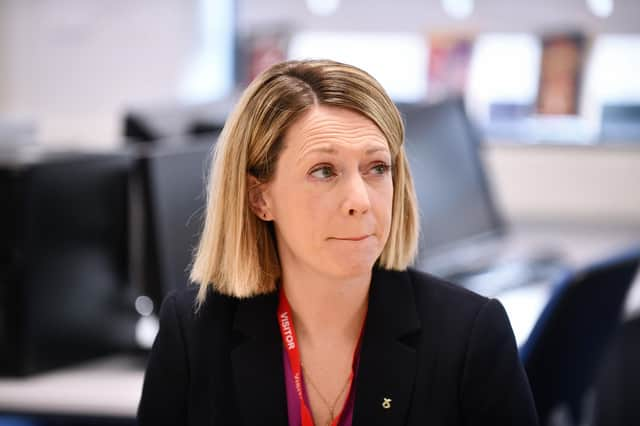- Sue Webber: PISA results not a wake-up call but a meltdown siren


He didn’t explain how it would be funded or how councils would maintain service levels while costs soared, particularly because of the SNP’s inflation-busting pay deals with unions, including a 14.6 per cent pay rise for teachers over 28 months.
But he did it anyway because, well, he’s the First Minister and he needed to do something to shore up support after the SNP’s disastrous Rutherglen by-election result.
Advertisement
Hide AdAdvertisement
Hide AdContrast that with education secretary Jenny Gilruth, who this week said she could not unilaterally ban mobile phones in schools, as I called on her to do in this column two weeks ago.
She has no more power to order a mobile ban than her boss had to tell councils what tax levels to set, but she has influence, and while I welcome her promise to update official guidance for headteachers to advise mobile phone bans are an option which will be supported, that’s very different from spelling out that the starting point should be removal.
Instead, we must now wait for new guidelines as part of a wider action plan to tackle poor behaviour, which follows a pattern of establishing working groups, commissioning reports and launching studies rather than taking firm action to address the proven decline in Scottish education laid bare by the latest Programme for International Student Assessment (PISA) results.
In 2019, the Scottish Government commissioned research to improve Scottish education, then in 2021 Ms Gilruth’s predecessor Shirley-Anne Somerville announced the Scottish Qualifications Authority was to be scrapped. In March this year another report said the exam and qualification system was not fit for purpose, and in April Ms Gilruth agreed an overhaul was needed.
Advertisement
Hide AdAdvertisement
Hide AdThe SQA still bumbles on, but what did Ms Gilruth say this week? “I look forward to returning to the Chamber in the New Year to debate these proposals more fully.” More words, no action.
Even in the face of repeatedly damning evidence, the pace of change would need to accelerate to become glacial, and Covid is still used as an invisibility cloak to cover the lack of responsibility for what has happened.
Everywhere, we are told, suffered the same slump, so it’s not our fault. Except PISA showed attainment in all three disciplines ─ reading, maths and science ─ rose in Japan and Korea. Italy was hit hard by the pandemic but reading and science standards improved. It was the same in Israel. In Ireland, science attainment improved.
Similarly, the Achievement of Curriculum for Excellence Levels (ACEL) report published this week, is used to claim improvement, pointing to a rise in the number of primary school children reaching expected levels of literacy and numeracy to pre-pandemic levels.
Advertisement
Hide AdAdvertisement
Hide AdBut expected by whom? It’s the subjective judgement of class teachers, not a proper comparison, and even so, 27 per cent of children were still below required literacy standards and 20 per cent couldn’t count adequately. That’s no cause for celebration.
If this is, as education expert Prof Lindsay Paterson said this week, the teaching establishment marking its own homework, it’s an even more damning indictment of the system. PISA wasn’t a wake-up call but a meltdown siren.
Sue Webber is a Scottish Conservative Lothian MSP